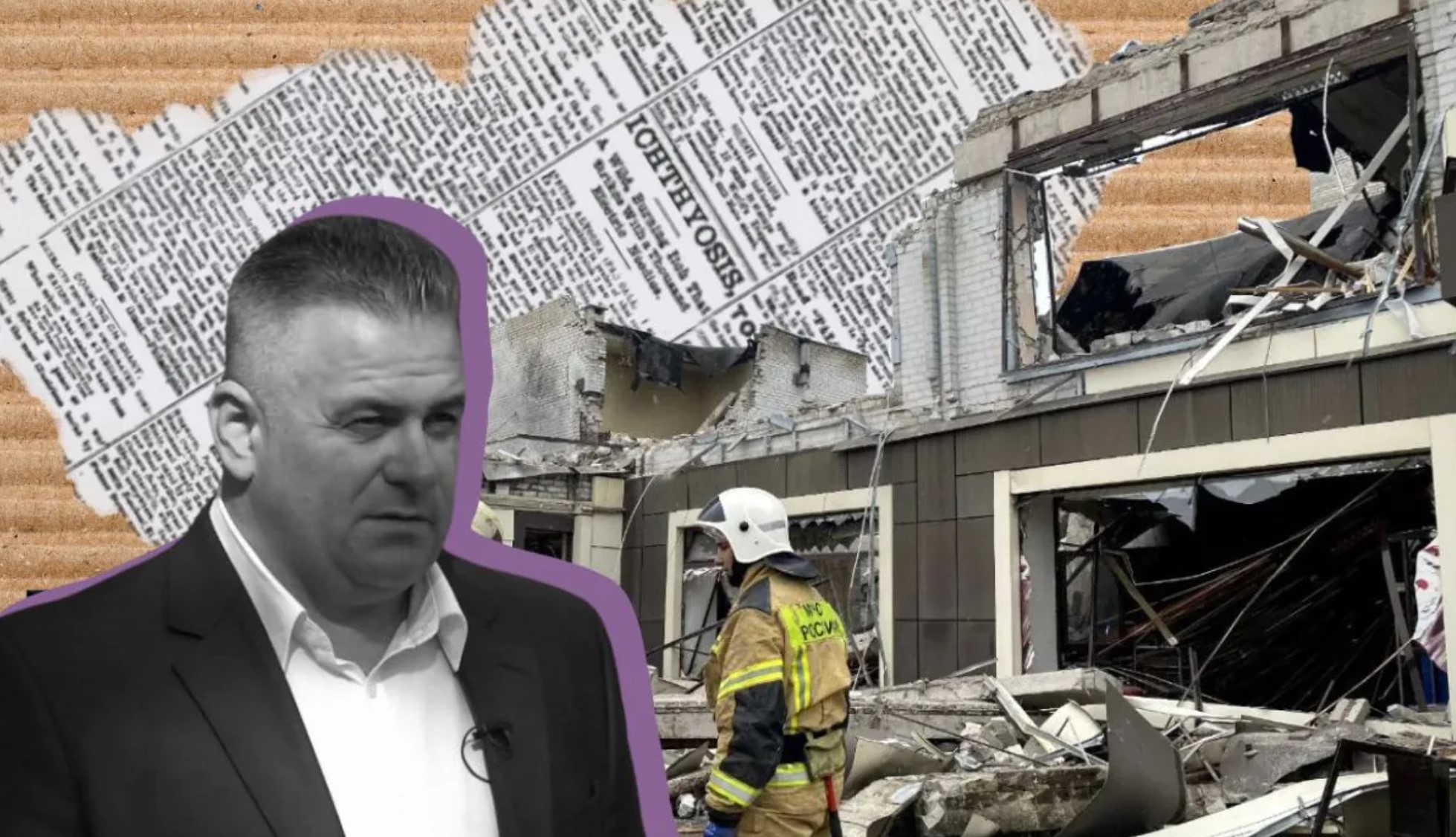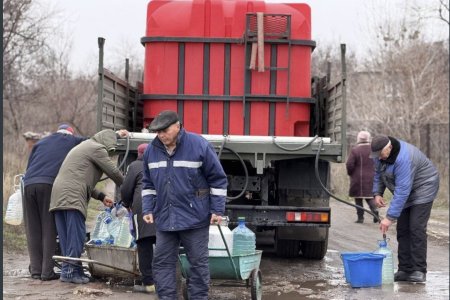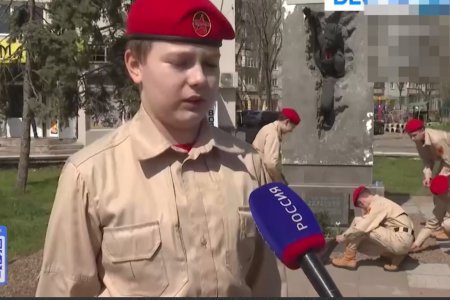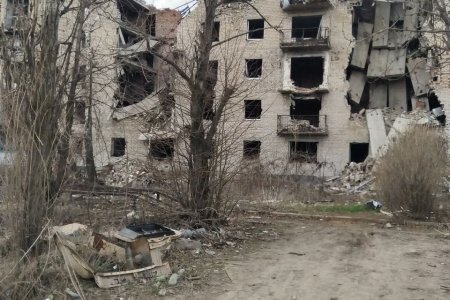
A ‘minister’ of the Russian-controlled ‘Luhansk people’s republic’ was killed in occupied Lysychansk on 3 February 2024, together with several other Russian-installed officials. That, however, became clear only two days after Russia shouted to the world about a “Ukrainian strike on a bakery”, and poured out propaganda aimed at presenting this as a Ukrainian ‘terrorist’ attack on innocent civilians, including a child.
Even those international media who did note that the building also housed the Adriatic restaurant were clearly influenced by Russian official and media reports and spoke of this as an attack on a ‘bakery’. The BBC, for example, quoted Russian foreign ministry spokesperson Maria Zakharova as claiming that Ukraine’s Armed Forces had deliberately targeted the bakery, knowing that "locals traditionally come there on Saturdays for baked goods and groceries, including the elderly and families with children".
Since all of these reports were accompanied by photos from Russia’s emergencies ministry, there is simply no possibility that Moscow was not aware who had been targeted, and that this was neither ‘the elderly’, nor ‘families with children’.
28 people may well have been killed in the attack, including a young child, however all were present at the Adriatic restaurant celebrating the birthday of an ‘official’ from Russia’s illegal ‘Luhansk people’s republic’ [‘LPR’]. Since all ‘LPR officials’ present were undoubtedly security conscious, there is next to no chance that any of those killed just happened to be in the wrong place at the wrong time. By 4 February, it had become clear that Oleksandr Poteleshchenko, the Russian-installed ‘LPR minister of emergencies’, was among the dead, as well as at least two ‘local deputies’ – Artem Trostiansky and Ivan Zushma. Nobody should have brought children to an event with people who were legitimate targets both for Ukraine’s Armed Forces and for local Ukrainian partisans.
As Realna Gazeta notes, such undoubtedly relevant information was only revealed after two days in which Russian propaganda went all out to present the attack as a ‘terrorist act against innocent civilians’. Russia essentially chose to make good propaganda out of the deaths of the ‘officials’ in occupied Lysychansk whom it had installed, local collaborators and, more than likely, Russian military. Ukraine had, it was claimed, targeted ordinary citizens simply trying to buy fresh bread in a ‘bakery’.
The Russian-funded and controlled ‘LPR Luhansk information centre’ even posted a video in which a girl is seen sniffing a bun, with the caption reading that “they will never again know the smell of fresh baking”. A photo was also posted from the so-called ‘LPR square’ in Moscow, which was purportedly a ‘spontaneous memorial’ to the victims but bore all the hallmarks of a staged event attended either by pro-Kremlin activists or by students, probably forced to take part.
The propaganda story was in all ways false. Yes, there was a bakery attached to the restaurant, however, Realna Gazeta (an originally Luhansk-based publication) notes the building was in an isolated part of the city and was certainly not somewhere where people would normally come ‘for fresh bread’. Most importantly, the birthday banquet had been planned in advance with the restaurant booked for the occasion.
The propaganda was pushed as long as they could flog it, with a pseudo ‘professor’ from the occupation ‘Luhansk university’, Dmytro Krysenko claiming that the building destroyed had been a place that “provided civilians with food”. Military correspondent Aleksandr Kots asserted that the bakery had been a focus to which hungry people from all over the city had converged, with this nonsense, if in somewhat edited form, repeated in western reports.
It seems to have been pro-Russian propagandists, writing on Telegram channels, that first messed up the propaganda narrative, with details about the birthday banquet laid on by the owner of Adriatic, with his guests “from the top echelons of the ‘LPR’ ministry of emergencies, prosecutors and local deputies”. It was one of these ‘LPR prosecutors’ who had decided to attend the event with his pregnant wife and child. Another report suggested that it was a “high-ranking person” who was celebrating his birthday.
What there does seem to be agreement on is that the information about the event, and the collection in one place of many obvious targets, would have been provided to Ukraine’s Armed Forces by local residents.



